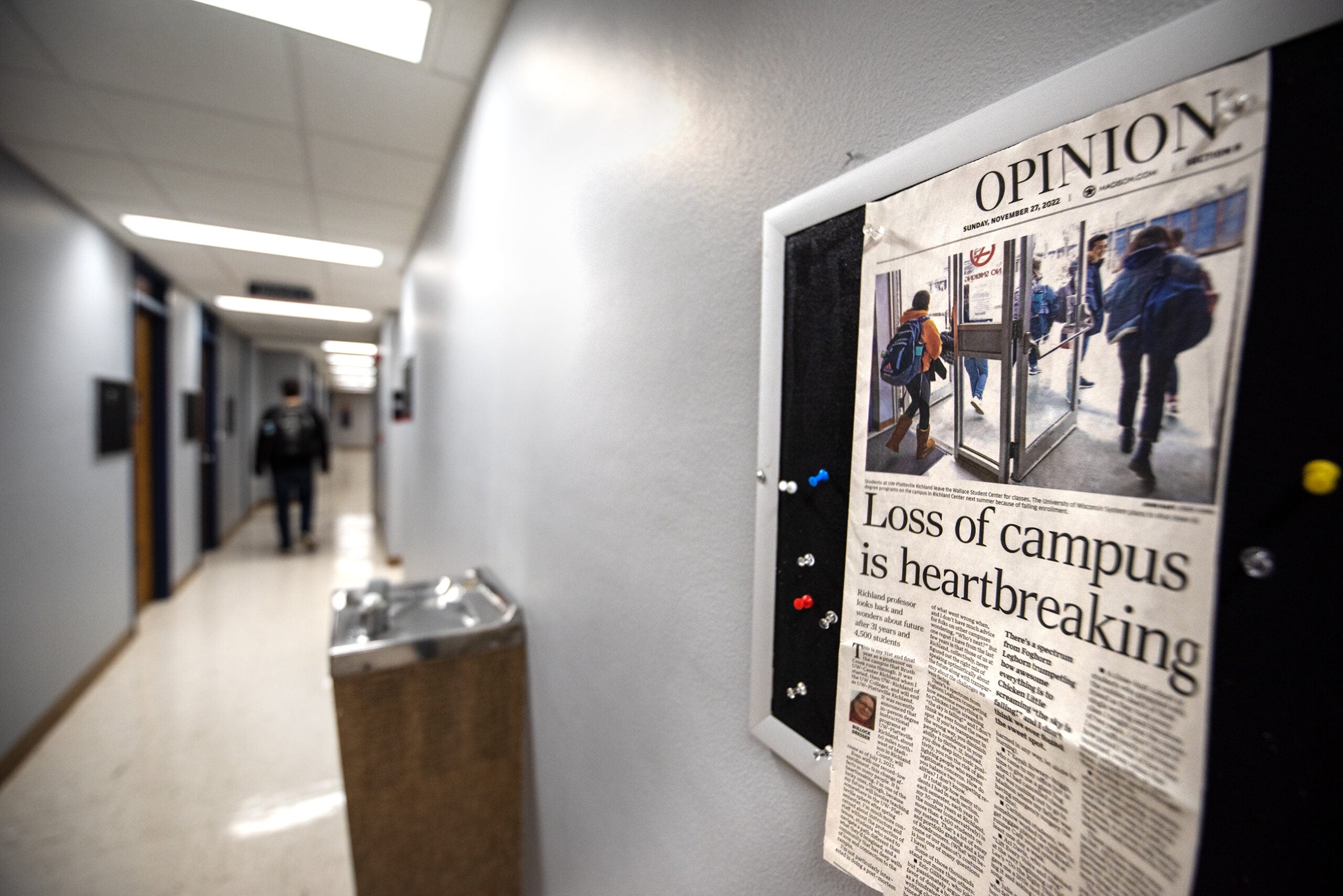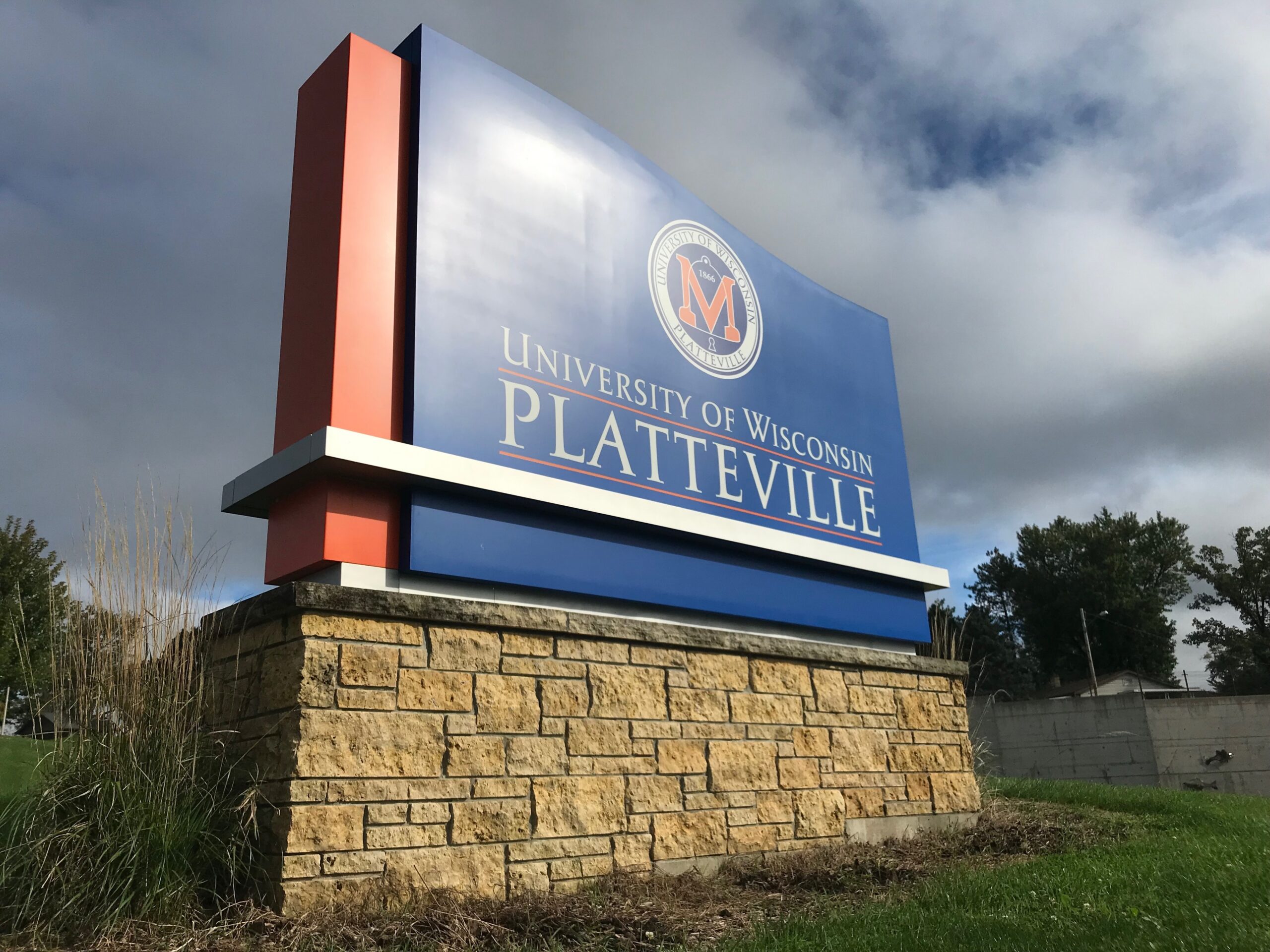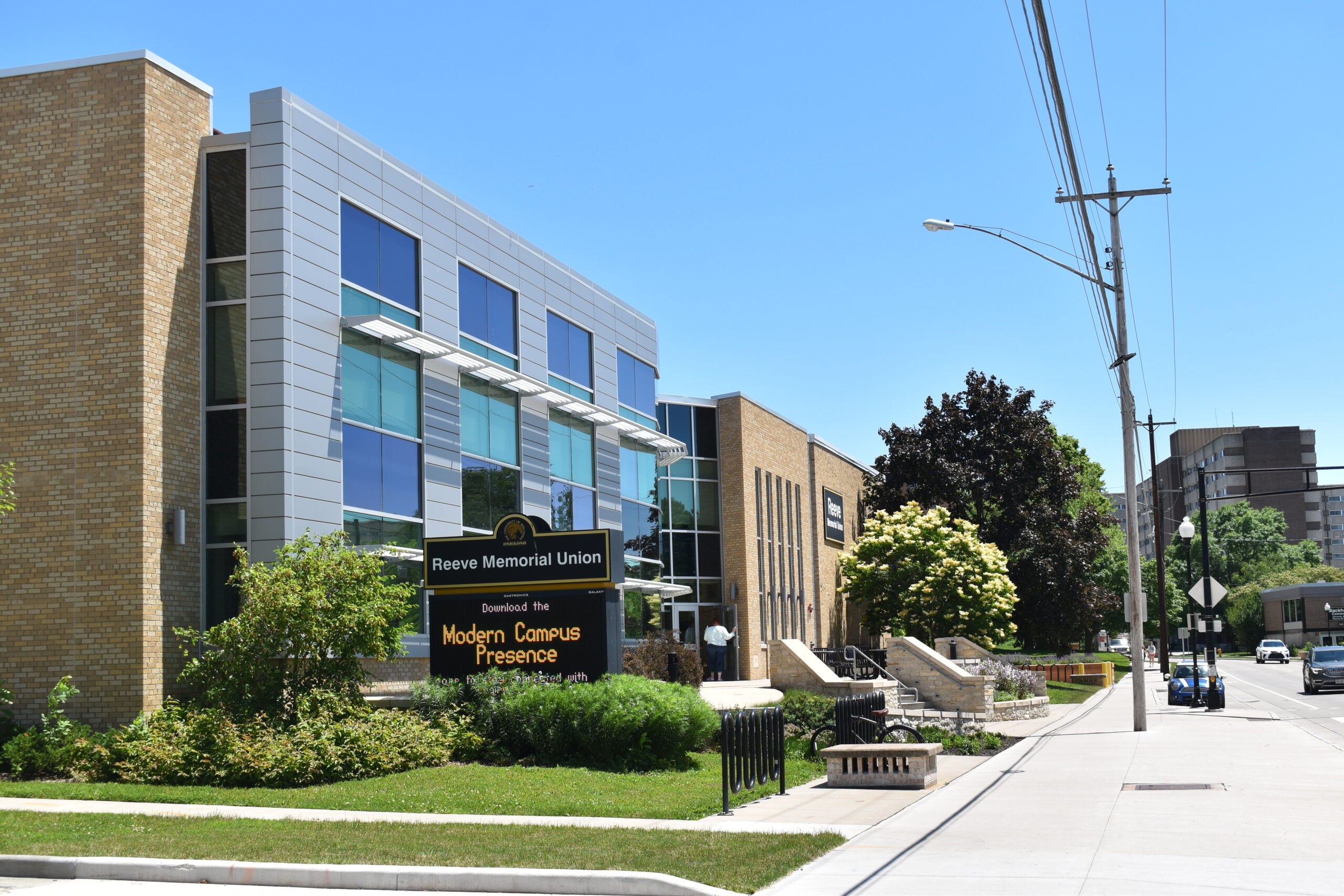County boards overseeing some two-year University of Wisconsin schools are delaying maintenance and upgrades until they get commitments that the university system won’t close those campuses.
The uncertainty around local campuses comes three months after the UW System announced it would stop offering classes at UW-Platteville Richland. It’s the first time the UW System has planned for instruction to cease at a campus in more than four decades.
The end of classes at Richland comes after seven years of steep enrollment declines. This semester’s classes will be the last ones held there.
News with a little more humanity
WPR’s “Wisconsin Today” newsletter keeps you connected to the state you love without feeling overwhelmed. No paywall. No agenda. No corporate filter.
University administrators have stopped short of saying the campus itself is closing and say they’re working with local officials to define UW-Platteville’s presence in Richland Center. But the move is widely understood in the community as essentially shuttering the campus. Attempts by community members to change that have appeared to make little headway, though discussions with the UW System about what comes next for UW-Richland are ongoing.
Richland is far from the only campus that has seen enrollment declines. And in at least two other counties, leaders are debating whether to pull back on local investments into their campuses.
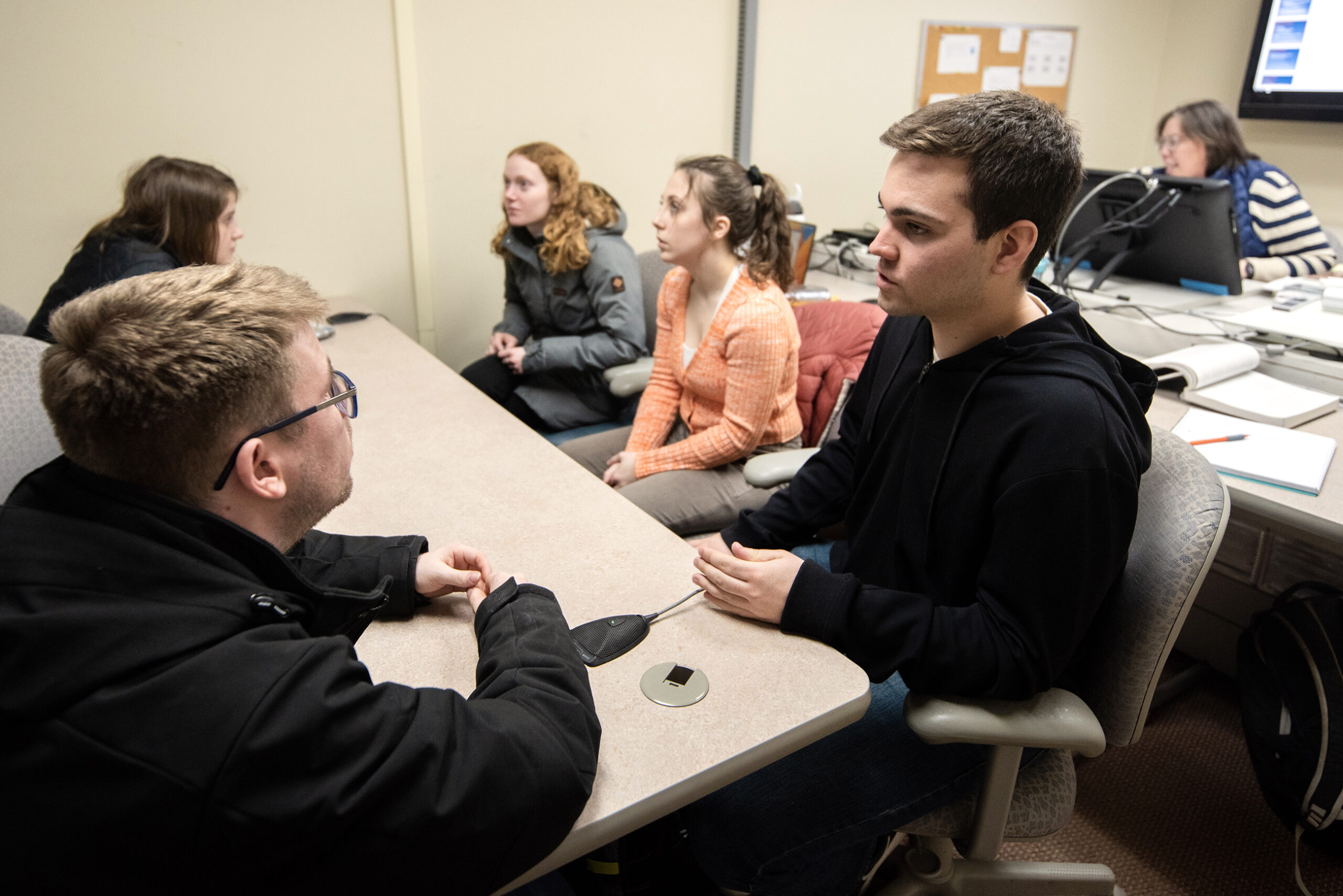
In Wausau, Marathon County Board Chair Kurt Gibbs took notice of the Richland announcement, as that county’s campus, known as UW-Stevens Point at Wausau, has seen enrollment fall by almost 70 percent over the past decade.
“I’m not naive enough to say, ‘If the enrollment falls again or continues to fall, that at some point the result of what happened at Richland Center wouldn’t be the potential result at Wausau,’” Gibbs said. “But we’re hoping to be able to forego that and not have that happen.”
Before a merger in 2018, the campus was known as the University of Wisconsin-Marathon County. During the Great Recession, enrollment peaked at around 1,400 students. Last fall, there were about 400 enrolled.
UW-Stevens Point has added new bachelor’s and master’s degree programs at the campus, but Gibbs said that hasn’t stemmed enrollment declines. During this year’s county budget cycle, he said, the Marathon County Board decided against approving parts of a $6 million request for upgrades until it gets assurances from the UW System that the campus isn’t going anywhere.
“I’m fairly confident that the board will continue (to stay committed) as long as the UW is committed to us,” Gibbs said.
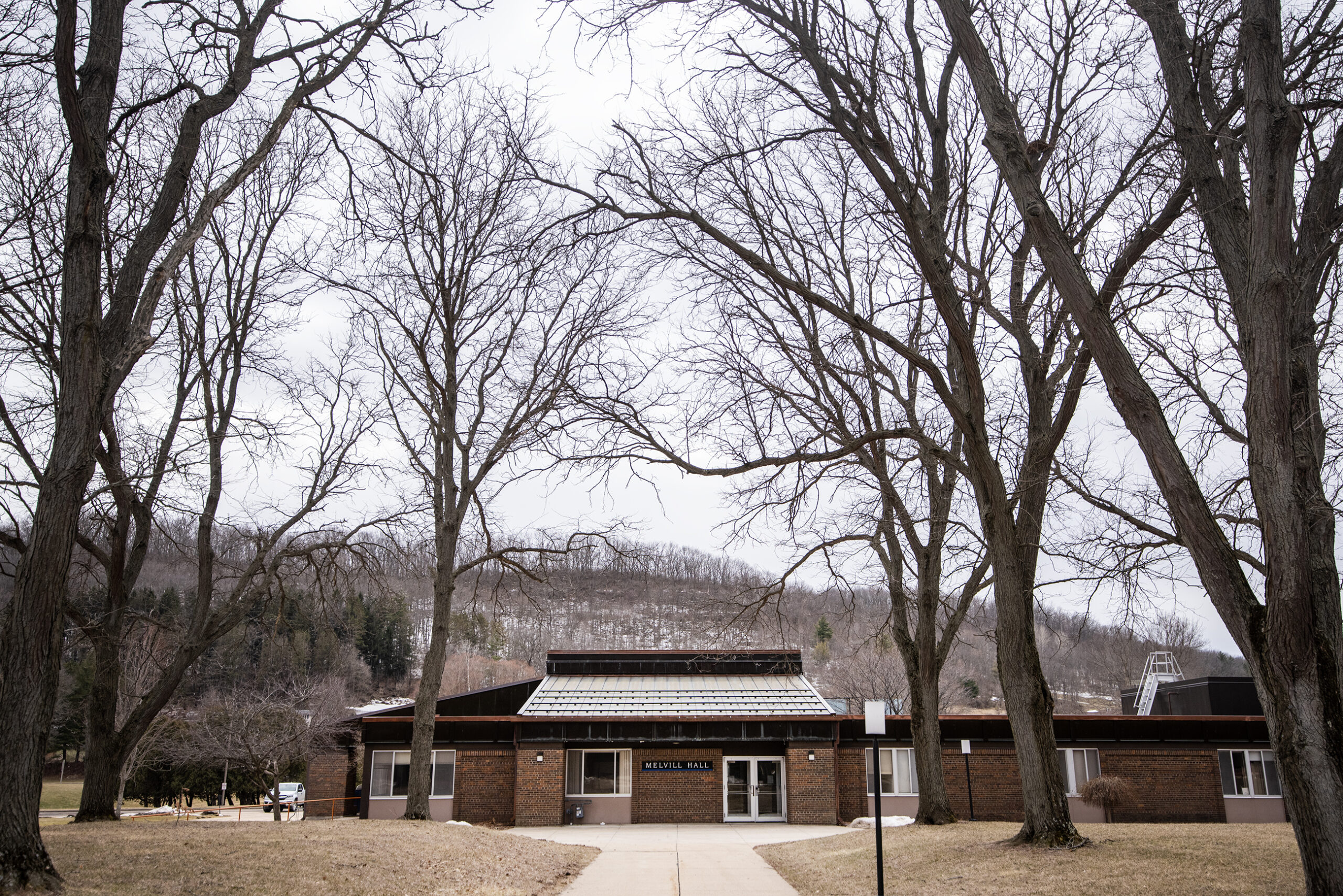
In the Fox Valley, two-year UW campuses in Menasha and Fond du Lac have seen similar enrollment declines. Those schools are affiliated with the four-year UW-Oshkosh campus.
During a recent Winnebago County Board meeting, Supervisor Steven Binder told his colleagues that being good stewards of taxpayer money means delaying their share of a $4 million request for an engineering study of a proposed expansion of kitchen and dining facilities at UW-Oshkosh Fox Cities. There were 605 students enrolled at the campus owned by Winnebago and Outagamie Counties last fall. That’s down from 1,600 in 2018.
Binder said that county board, too, needs a renewed commitment from the UW System.
“Neither Outagamie County nor Winnebago County want to invest money in a building if we’re not guaranteed that we’re going to be there for at least five years,” Binder said.
Before the board pulled the funding, Fox Cities student Kiersten Lewis urged supervisors to reconsider.
“We have these young people here, and without this school, they may choose to leave, which is going to severely damage the economy and local atmosphere,” Lewis said.
UW Oshkosh Chancellor Andrew Leavitt told Wisconsin Public Radio he’s already let county officials know the university is in for the long term.
“I can understand that they want a commitment that we’re going to be remaining on the campus through, certainly the initial life of the improvements that are made,” Leavitt said. “I’m prepared to make it. I’m not quite sure in what form they want that commitment.”
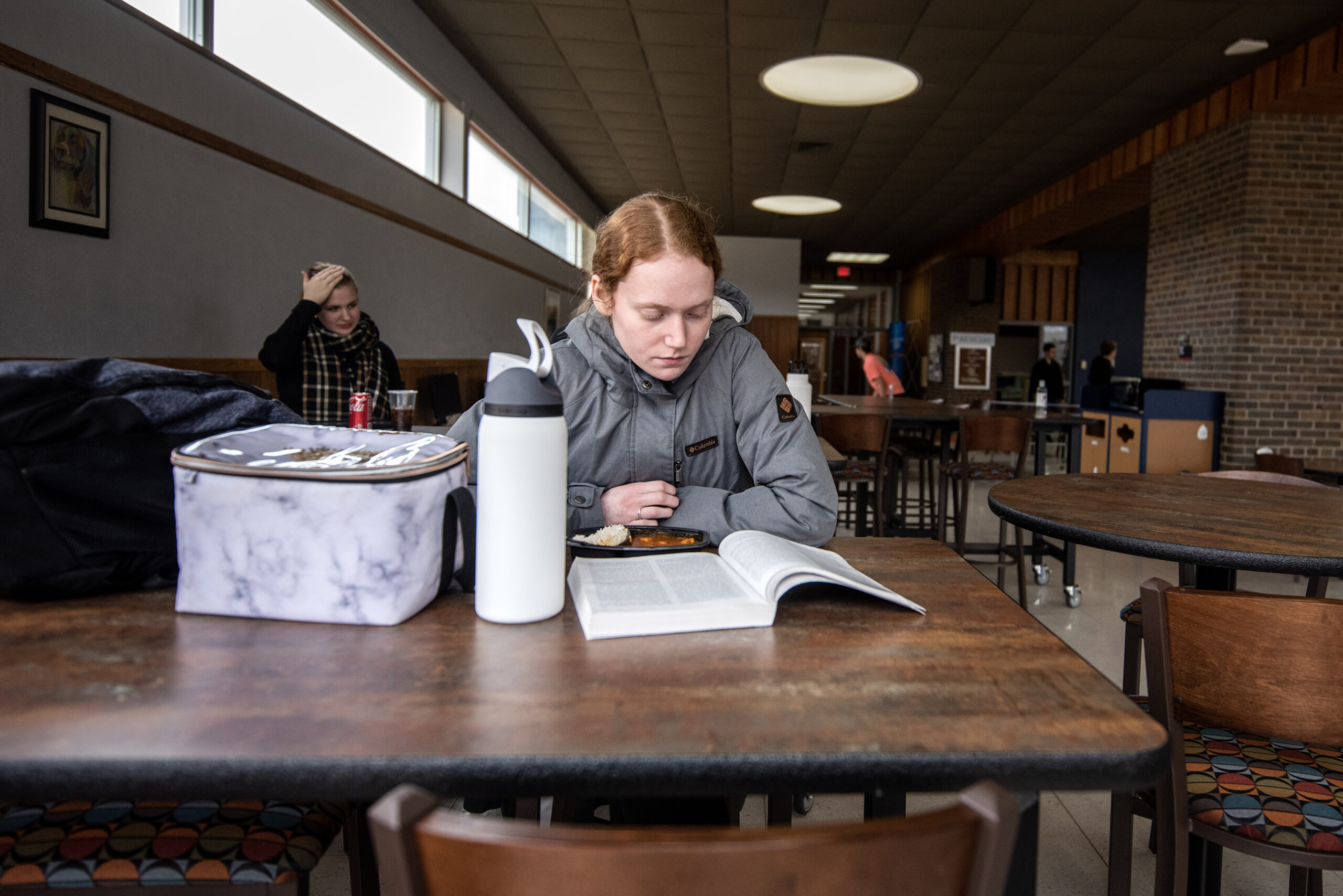
‘I’ve got to figure out options’
Sophomore Emily Lund will finish her two-year associate’s degree program at Richland in May. She’s interested in agricultural studies and is even raising cattle and goats on a family farmstead nearby. She said her time at the small, rural campus has helped prepare her for college life in a bigger city. Lund hoped to take classes from UW-Platteville at the Richland campus. She’s now thinking of transferring to UW-Madison, which is about an hour commute.
“I can’t pick up an entire herd of cattle and some goats and show up in a dorm room,” Lund said. “I’ve got to figure out options.”
The mission of the UW System’s regional two-year campuses is to provide a lower-cost, high-access stepping stone toward a four-year degree. The 13 two-year campuses around the state accept students whose grade point averages might exclude them from admission to more selective four-year universities. And they provide a regional network that allows students to attend college closer to home and avoid costs associated with living in a campus dormitory.
Heath Zumach will also finish his associate’s degree at the end of the spring semester in Richland. Initially, he thought about dropping out last fall when he heard about classes ending. Now, he’s thinking about taking online classes from home.
“If classes were to continue, I would come back here and do more,” Zumach said. “Even if I had an associate’s degree, I’d keep doing more classes and go from there.”
The Richland campus once had more than 500 students. In the last weeks of classes on campus, it feels like a ghost town, with empty hallways and parking lots peppered with a handful of vehicles. On an otherwise bare corkboard in a hallway on campus, someone has pinned a local newspaper column with the headline, “Loss of campus is heartbreaking.”
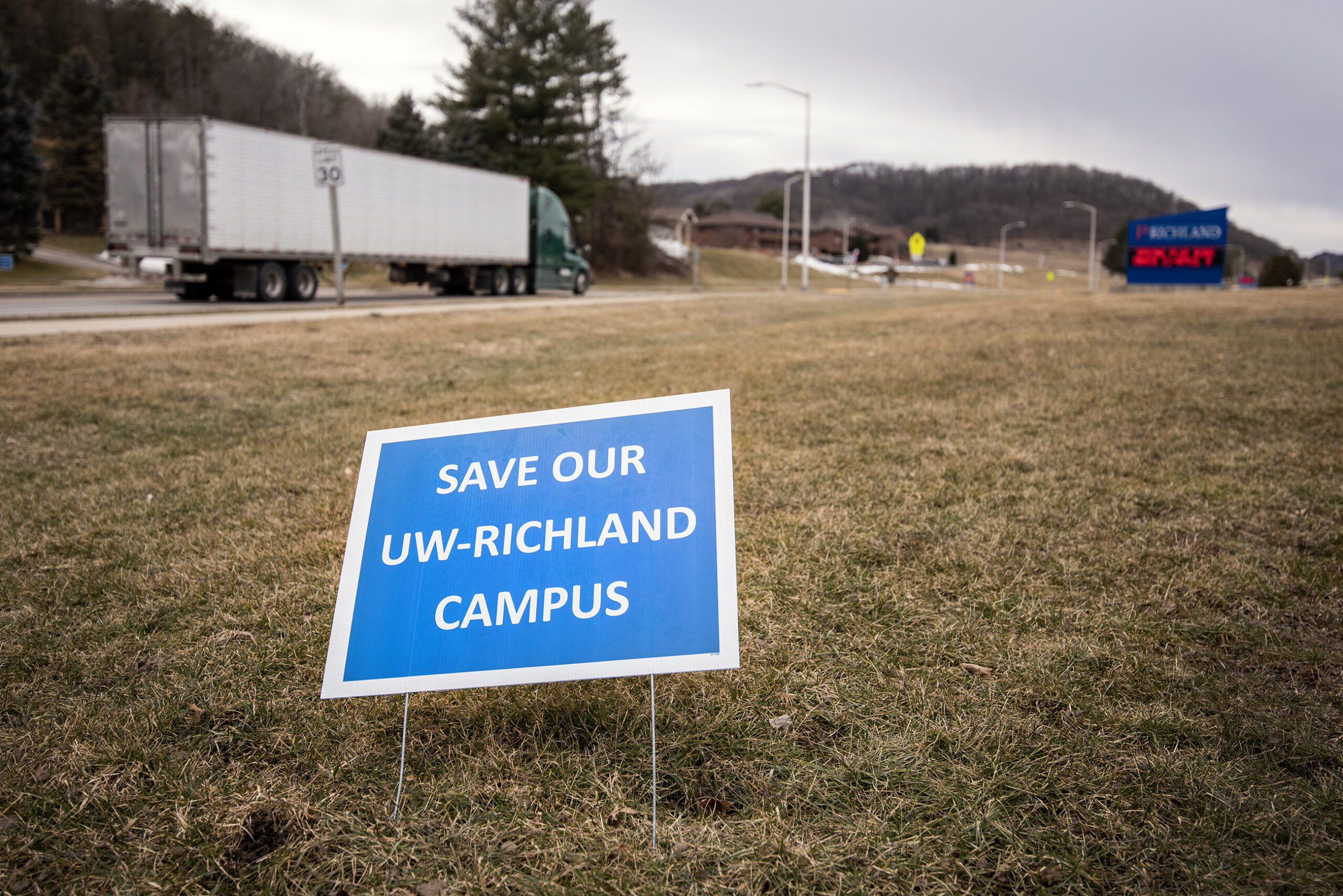
The colleges now referred to as branch campuses by the UW System have been around for decades and represent a unique partnership between state and local governments. Campuses and buildings are owned by counties, while instruction is provided by the UW System by way of decadeslong lease agreements.
Enrollment at the UW’s two-year and four-year campuses hit a high water mark around 2010 as the Great Recession drove up the unemployment rate and more people turned to higher education for a leg up in a bad economy. The number of students has been falling ever since at most colleges and universities in the state.
In 2015, Republican state lawmakers and former GOP Gov. Scott Walker approved a $250 million cut to the UW System’s budget and continued a freeze on in-state undergraduate tuition increases. For UW colleges, the freeze has persisted for 14 of the past 16 years.
The funding cut, tuition freeze and revenue losses from declining enrollment presented an untenable situation for the state’s two-year colleges, said former UW System President Ray Cross, who led the system from 2014 through 2020. He said there were talks about merging them with nearby technical colleges, but local boards governing those schools were not interested.
Instead, in 2018, Cross merged the colleges with the UW’s four-year universities. He said one of the goals was reducing administrative costs by allowing campuses to share positions such as admissions staff and deans. Cross said he also hoped universities overseeing the campuses would be aggressive by offering new programming like four-year degree options at the former colleges. He pointed to UW-Green Bay, which has stabilized and even reversed enrollment declines at two of its former colleges, as an example.
“That’s the kind of vision we had hoped that would occur in other areas,” Cross said. “It just hasn’t happened as quickly or as successfully as I hoped.”
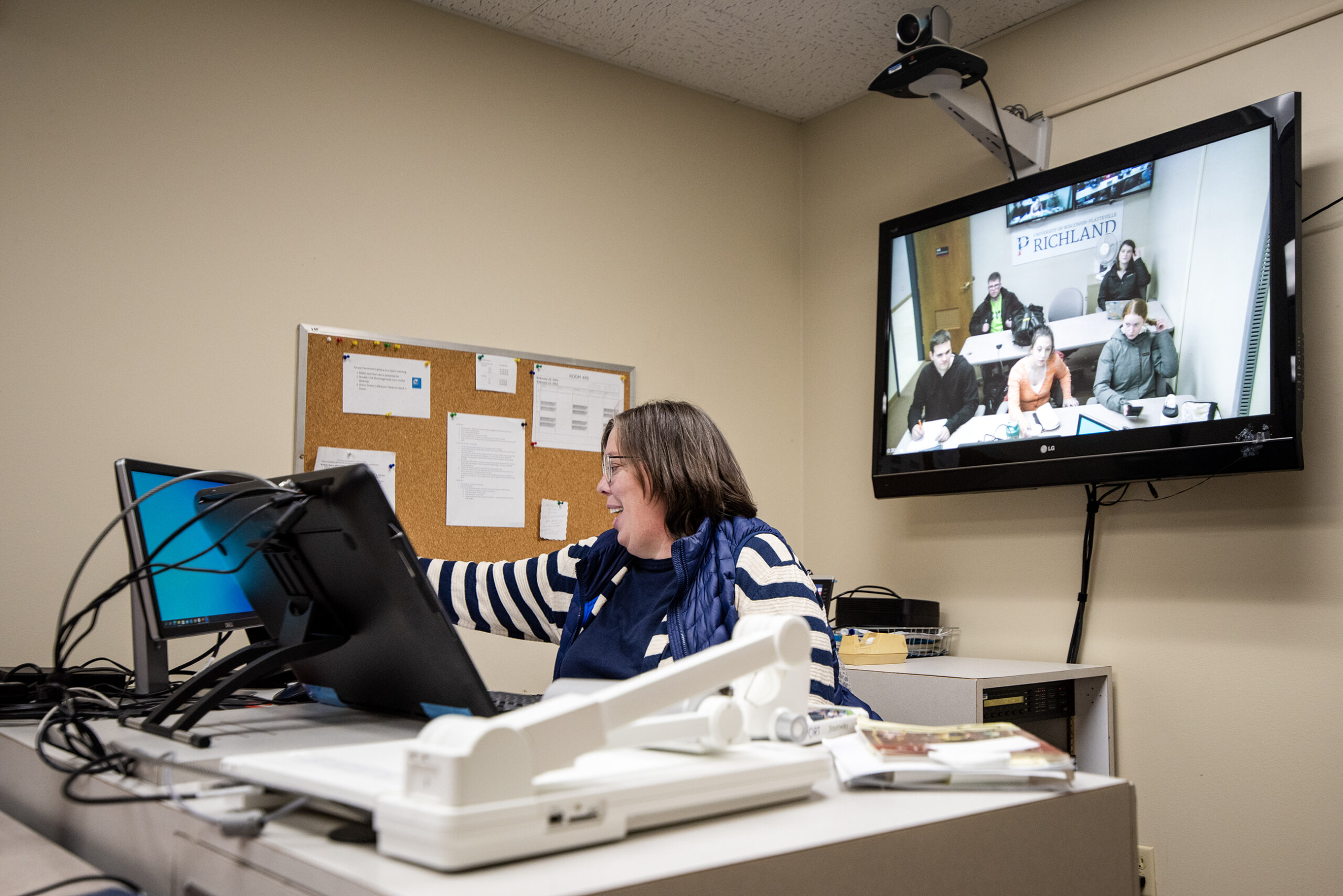
A WPR analysis of UW System enrollment records reveals that enrollment declines have accelerated since the mergers. Between fall 2018 and fall 2022, the number of students at campuses in Richland Center, Wausau, Baraboo, Menasha, Fond du Lac, Waukesha and West Bend has fallen by 50 percent or more. Enrollment declined at most other UW schools during that time, too, but at slower rates. Nationally, two-year college enrollment fell by more than 17 percent during that timeframe.
In Richland Center, many have pointed to the loss of a dedicated campus recruiter and international student program coordinator after the merger with UW-Platteville as a potential reason for why enrollment fell by 83 percent over the past five years.
Last year, the UW System Board of Regents approved eight new liberal arts associate’s degree programs for technical colleges. These degrees have historically been offered by UW colleges and not by Wisconsin’s technical colleges. Their approval marked a shift from recent years, when former regents and Cross worried that allowing tech schools to offer liberal arts degrees would hasten the demise of two-year UW campuses.
As enrollment continues to decline, Cross thinks the Wisconsin Legislature should get involved. He said lawmakers should have a “serious conversation” about creating a unified community college system of technical and liberal arts campuses.
“Should we be like 95 percent of the rest of the states in this country and merge our technical and UW colleges?” Cross said. “Is that the best solution? And I think it is.”
Yet Cross said he doubts that will happen without a concerted push by legislators and Gov. Tony Evers.

Strong feelings, contentious meetings persist in Richland Center
As some counties withhold funding for their two-year campuses, residents in Richland Center and members of the Richland County Board are making a last-ditch effort to keep classes going at UW-Richland.
In late January, emotions were high as dozens of people packed one of the campus’s classrooms to pitch ideas on how to save the 55-year-old school. Marnie Dresser told the crowd she’s taught there since 1992 but will retire along with in-person instruction this summer. She and others in the room accused UW-Platteville of mismanagement and diverting students an hour south to the university.
“I think there are too many strong feelings,” Dresser said. “I don’t see how good things can happen if this campus is still connected to that institution.”
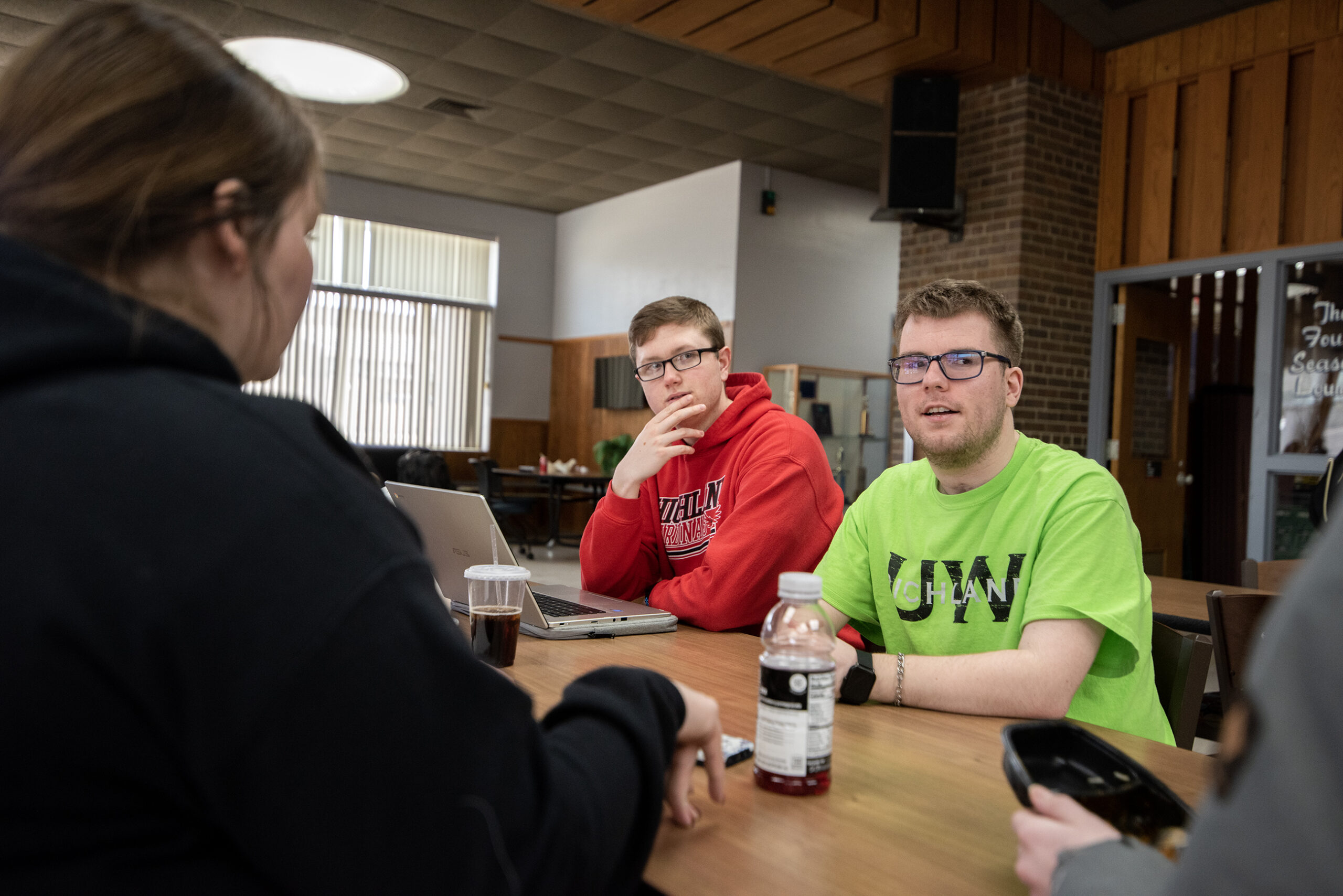
Others mentioned a recent Richland county board resolution seeking an additional $4 million from the UW System to pay for things like a college recruiter. Some looked directly at state Sen. Howard Marklein, R-Spring Green, and state Rep. Tony Kurtz, R-Wonewoc, seated in the front row. They said the two members of the state’s Joint Finance Committee could surely get the money from the state’s projected $7 billion surplus.
Kurtz faced the group and said he’d already mentioned it to skeptical GOP colleagues.
“So, I am being brutally honest with you,” Kurtz said. “I could probably persuade a few, but I know it would be a fruitless effort. Because we would lose.”
He also responded to calls by some in the audience for a blue-ribbon commission to study the future of UW-Richland. Kurtz said it should be an honest discussion about all UW colleges.
“Because if they did that, I think a lot of people would be surprised,” Kurtz said. “(They could conclude), ‘Well, maybe we don’t need some of these two-year campuses.’”
In a statement emailed to WPR, UW System Vice President for University Relations Jeff Buhrandt said UW officials are having regular conversations with community leaders across the state about how the two-year campuses can continue serving their regions.
“In particular, we are very pleased to have local school districts and Southwest Technical College fully engaged in this process regarding Richland Center,” Buhrandt said. “I believe these educational partners will play a key role in the long-term strategy for that campus.”
Wisconsin Public Radio, © Copyright 2025, Board of Regents of the University of Wisconsin System and Wisconsin Educational Communications Board.

